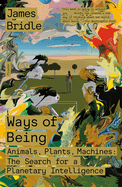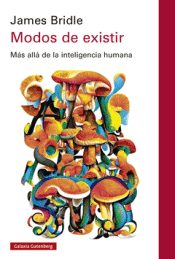Para envío
Artist, technologist, and philosopher James Bridle's Ways of Being is a brilliant, searching exploration of different kinds of intelligence--plant, animal, human, artificial--and how they transform our understanding of humans' place in the cosmos.
What does it mean to be intelligent? Is it something unique to humans or shared with other beings--beings of flesh, wood, stone, and silicon? The last few years have seen rapid advances in "artificial" intelligence. But rather than a friend or companion, AI increasingly appears to be something stranger than we ever imagined, an alien invention that threatens to decenter and supplant us.
At the same time, we're only just becoming aware of the other intelligences that have been with us all along, even if we've failed to recognize or acknowledge them. These others--the animals, plants, and natural systems that surround us--are slowly revealing their complexity, agency, and knowledge, just as the technologies we've built to sustain ourselves are threatening to cause their extinction and ours. What can we learn from them, and how can we change ourselves, our technologies, our societies, and our politics to live better and more equitably with one another and the nonhuman world?
The artist and maverick thinker James Bridle draws on biology and physics, computation, literature, art, and philosophy to answer these unsettling questions. Startling and bold, Ways of Being explores the fascinating, strange, and multitudinous forms of knowing, doing, and being that make up the world, and that are essential for our survival.
Includes illustrations




